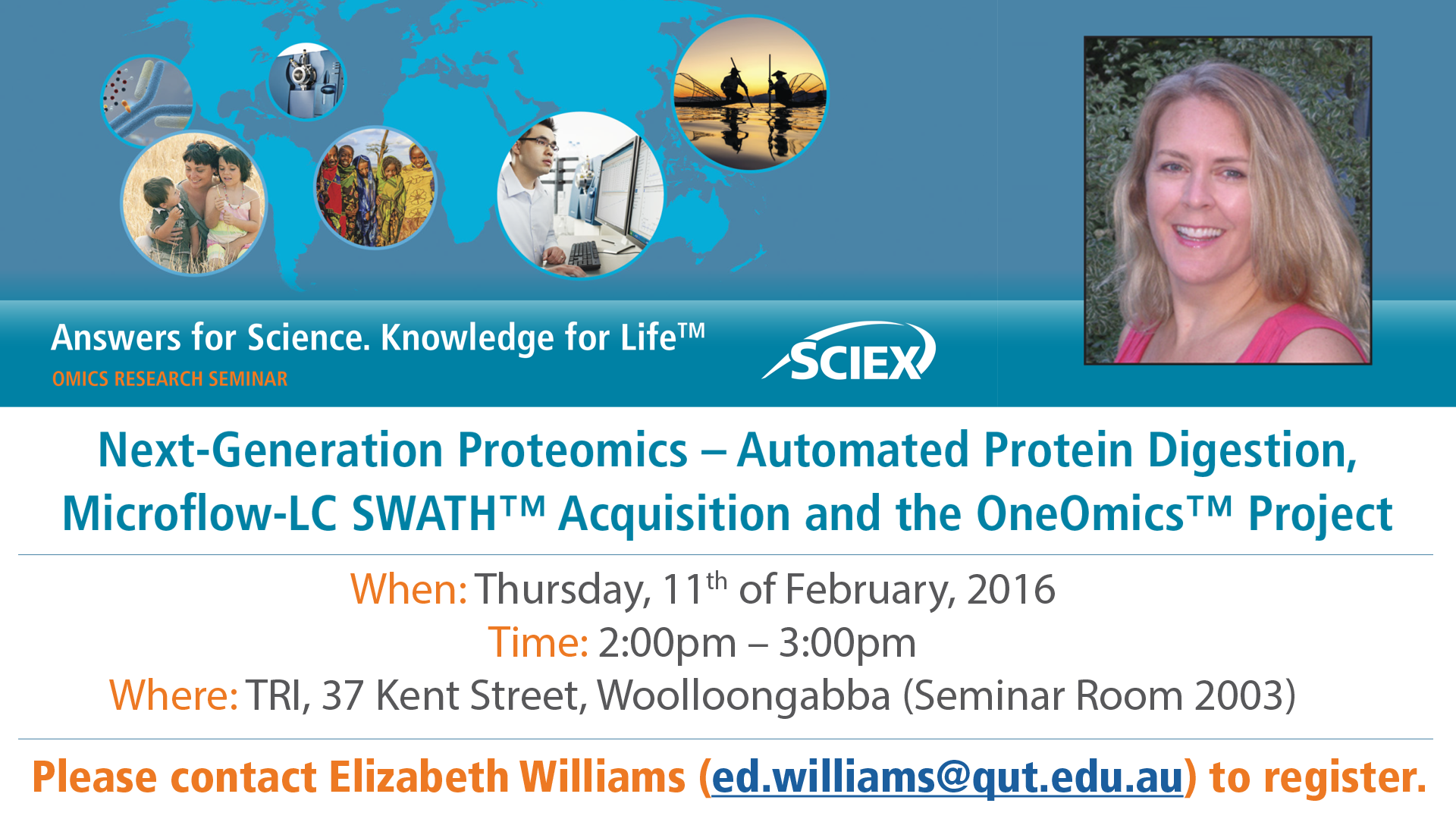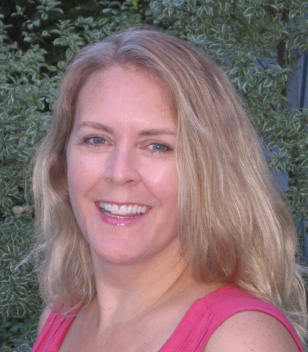Next-Generation Proteomics – Automated Protein Digestion,
Microflow-LC SWATH™ Acquisition and the OneOmics™ Project
Please join us for speaker Christie L Hunter from SCIEX with afternoon tea to be served after the seminar.
The complexity and dynamic range of compounds in biological samples is very large. This poses challenges for the traditional mass spectrometric analysis, requiring a trade-off between comprehensiveness and quality. In recent years, Data Independent Acquisition (DIA) strategies such as SWATH® have been used to increase the comprehensiveness of proteomics data while maintaining high quantitative reproducibility in label-free experiments. In DIA, larger fixed-width Q1 windows are stepped across the mass range in an LC timescale, transmitting populations of peptides for fragmentation, and high resolution MS and MS/MS spectra are acquired. Relative peptide and protein abundance values are measured by post-acquisition extraction of known peptide fragment ions, producing data comparable to gold-standard multiple-reaction-monitoring (MRM) analysis from a triple quadrupole LC-MS/MS.

Many labs are now using SWATH® to perform quantitative proteomic experiments on 1000s of proteins in complex matrices. As this technique increasingly proves to be a solid tool for biomarker research, larger sample sets are being analyzed, driving the need for automated sample preparation solutions, improved LC-MS throughput and robustness, and cloud computing tools to support large-scale bioinformatics.
This seminar, presented by Dr. Christie Hunter (SCIEX, USA) will detail recent work on automated protein digestion, microflow-LC SWATH® proteomics and the OneOmics™ project, SCIEX’s partnership with Illumina to provide a common platform for easy, secure analysis and visualization of large multi-omics data sets.
> Please contact Elizabeth Williams ([email protected]) to register.

Christie L Hunter, Ph.D.
Christie Hunter is the Director of Omics Applications at SCIEX. Christie and her team are focused on developing and testing innovative MS workflows for the quantitative analysis
of proteins and peptides, and work collaboratively with the instrument, chemistry and software research groups. Most recently, she has focused on quantitative proteomic applications using differential mobility separation and the new SWATHTM Acquisition workflow. Christie received her Ph.D. in protein biochemistry from the University of British Columbia (Canada) in 1997 and did her post-doctoral research at a small biotechnology company, Gryphon Sciences, from 1997 to 2000.







